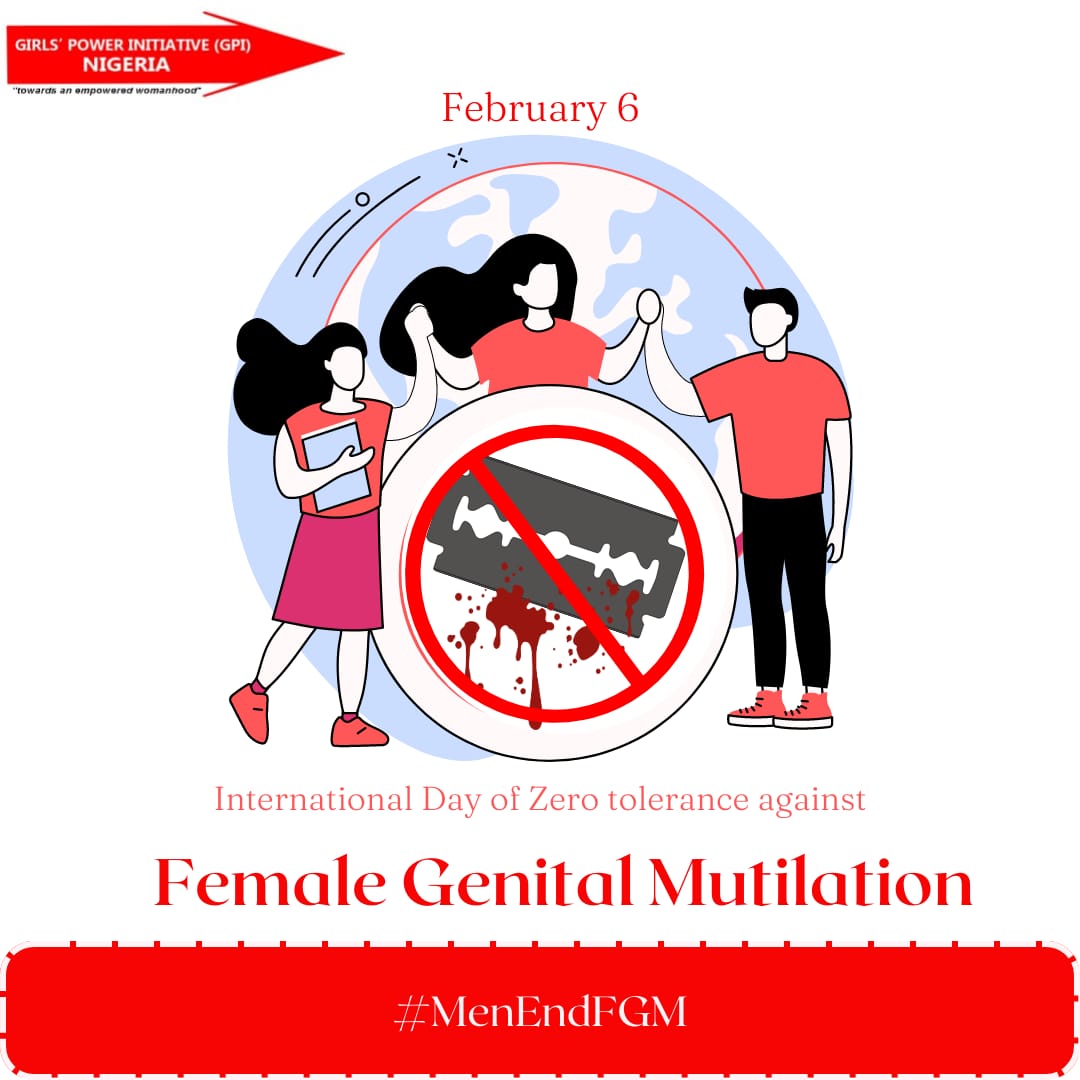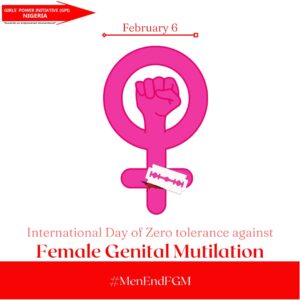Female Genital Mutilation- Partnership with Men and Boys
By Aderonke Olisa Editor, Loretta Enofe-LaurelFemale Genital Mutilation or Cutting (FGM) is the cutting away of part or all of the external female genitalia for non-medical reasons – World Health Organisation (WHO). FGM is mostly carried out on girls between infancy and age 15.
It is a harmful practice that causes physical, mental, and medical harm (such as severe bleeding and problems urinating, cysts, infections, as well as complications in childbirth and increased risk of newborn deaths) to women and girls affected.It robs girls of their childhood, dashes their hopes of adulthood, and leaves them with the trauma of motherhood due to the scarification process. FGM remains a widespread practice in Nigeria with an estimated 19.9 million survivors. Nigeria has the third-highest number of women and girls who have undergone FGM worldwide.
Despite having more circumcisors as females, and mothers who take their daughters for the rite, engaging men and boys in the campaign against FGM is crucial. This year’s theme for the International Day of Zero Tolerance Against FGM: Partnership with boys and men is driven towards their engagement. This is because men constitute the majority in the group that are culture keepers and protectors who influence the uphold of this practice and other rites – positive or harmful. Also, when men join forces to speak against FGM, more action is taken and the voices of women and girls who advocate against the practice are further amplified, and female sustainers end have no reason to continue. The involvement of men and boys has yielded positive results in other initiatives with the #He4She Movement as a resounding example, giving foresight to the expected impact of this collaboration.My sister took her first daughter for circumcsion even though she wasn’t circumcised, said she didn’t want trouble from the baby’s dad and his mother – Pearl
How Can Men and Boys Be Involved?
There are numerous ways of involvement such as men being at the forefront of campaigns against this practice.5 WAYS men and boys can get involved: LETAZ
- Learn about FGM (GPI-Know-This-Series-FGM.pdf)
- Educate other men ABOUT FGM
- Take action at your (online) community level to raise awareness about the harmful consequences of FGM.
- Amplify the voices of women to give more credibility and show support
- Zero Tolerance to FGM is your stand ALWAYS
References
Female Genital Mutilation Day theme in 2023 – Partnership with Men and Boyshttps://www.unicef.org/nigeria/press-releases/unicef-warns-fgm-rise-among-young-nigerian-girls https://www.who.int/news-room/fact-sheets/detail/female-genital-mutilation

